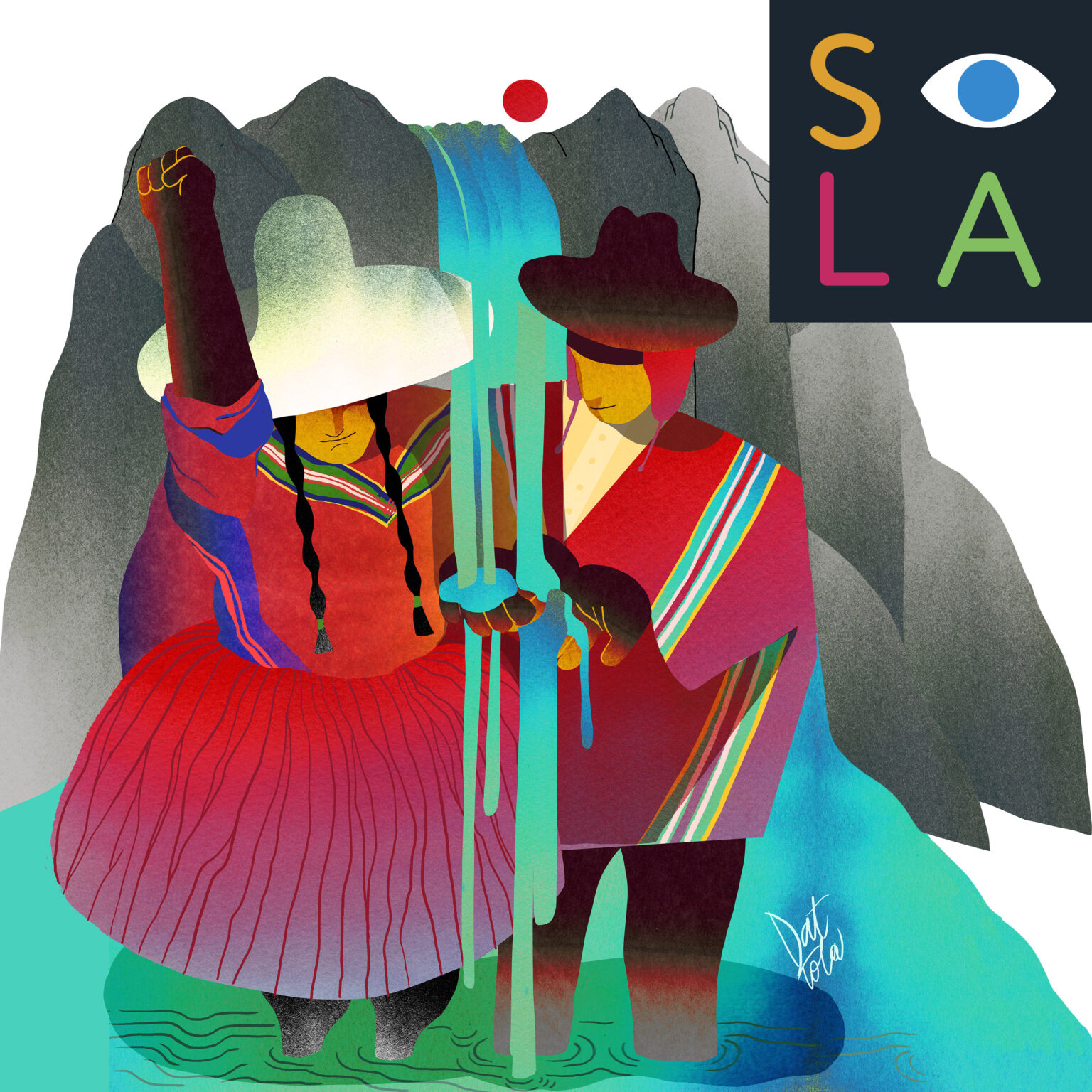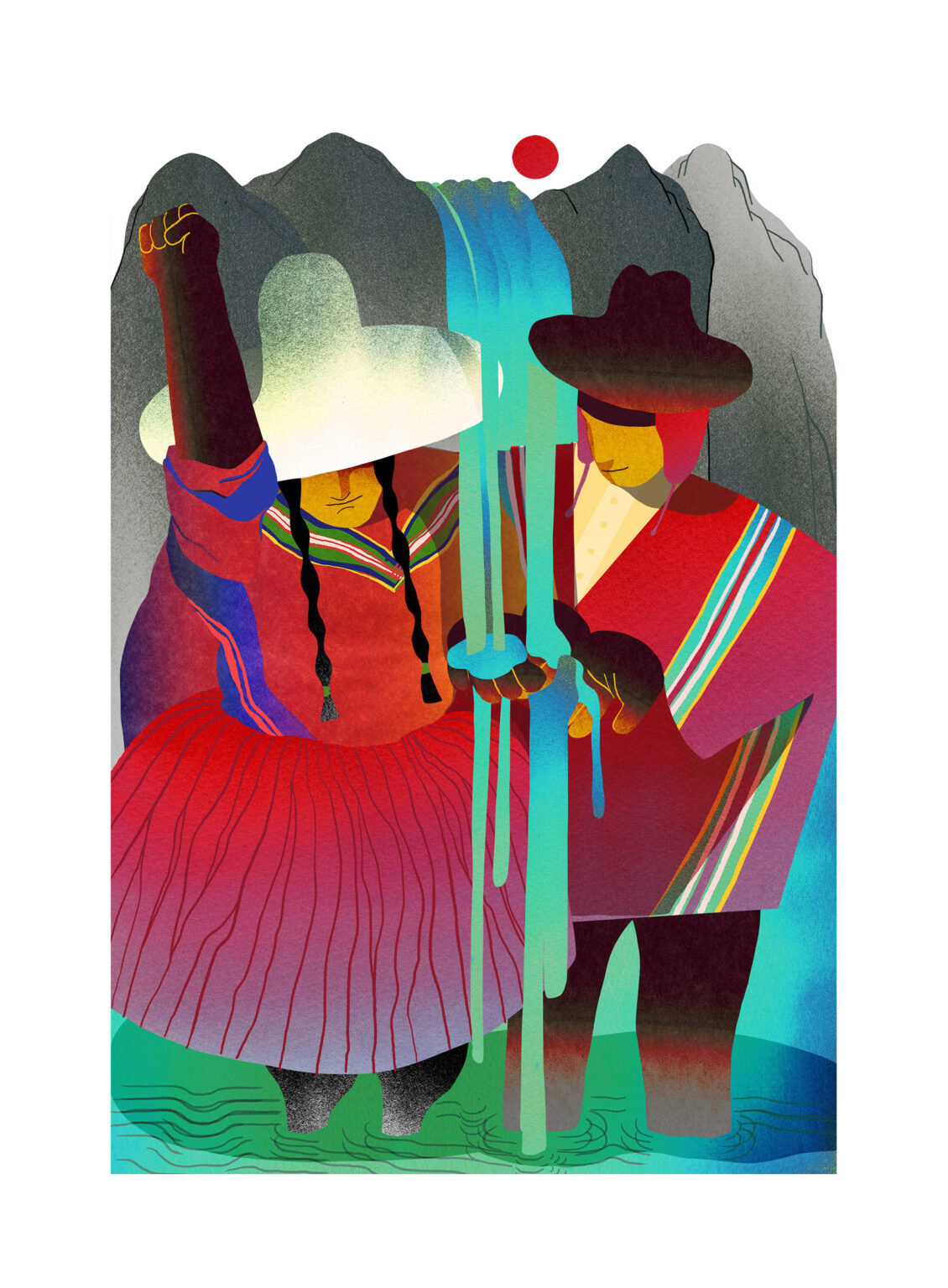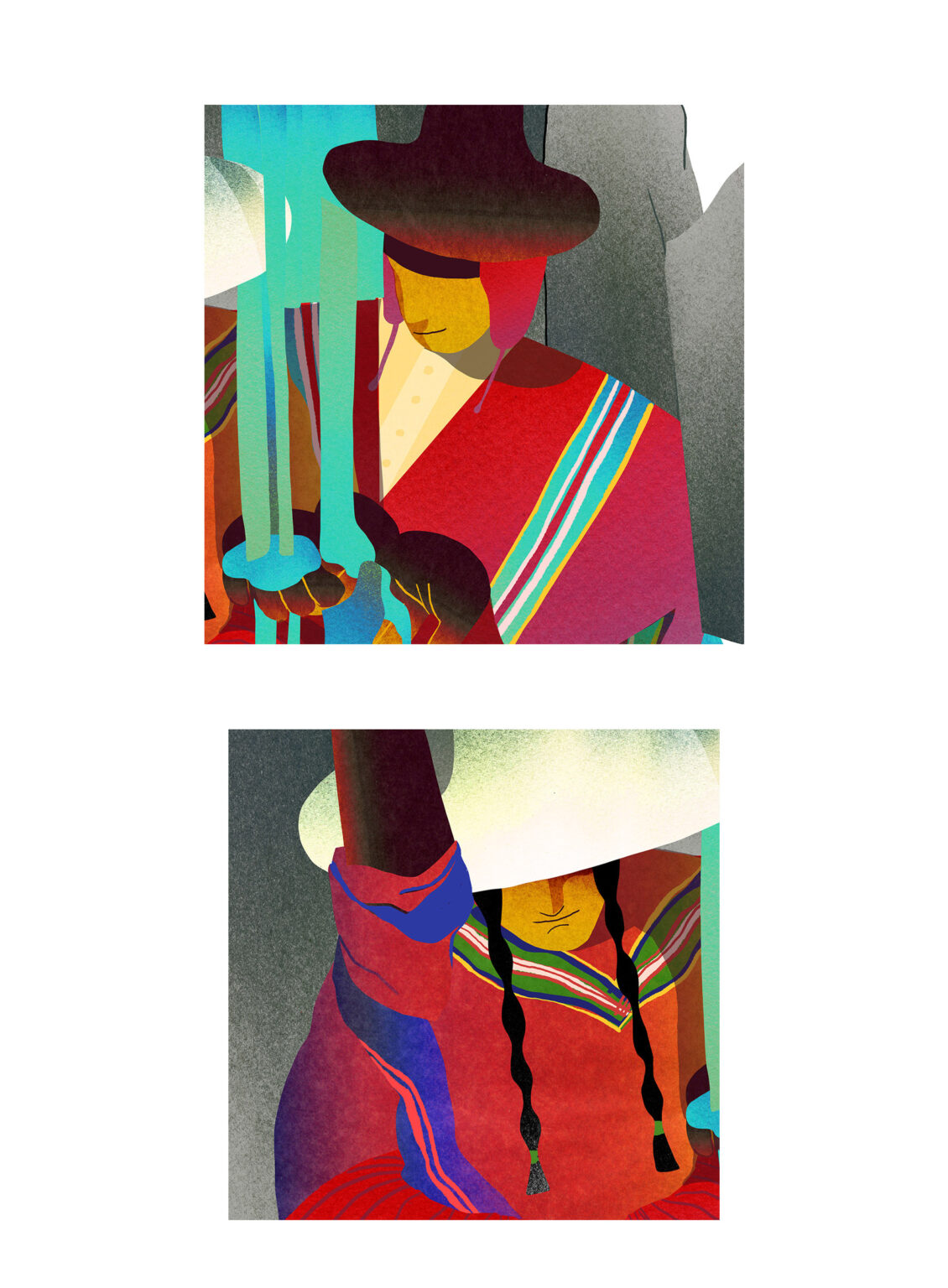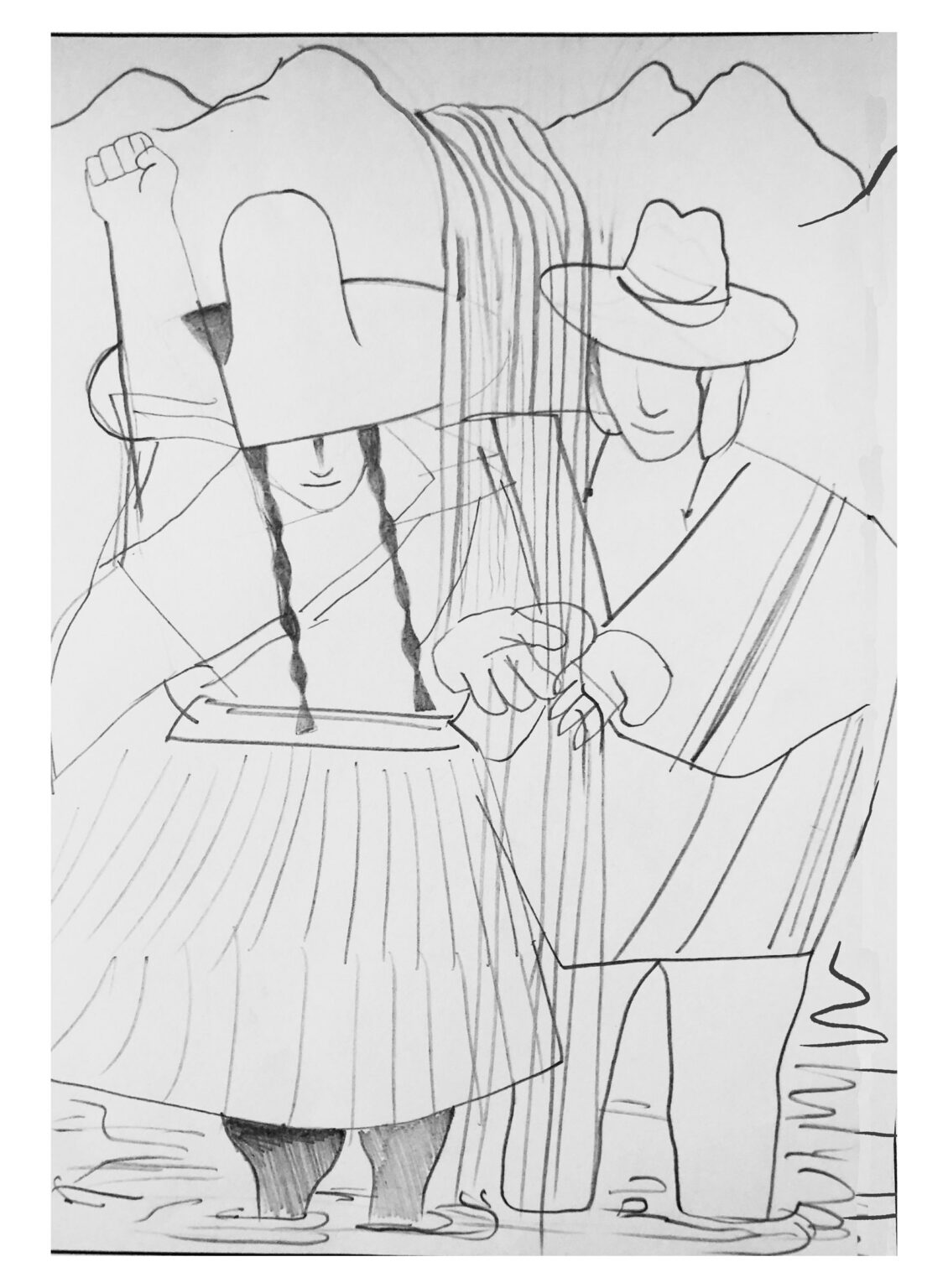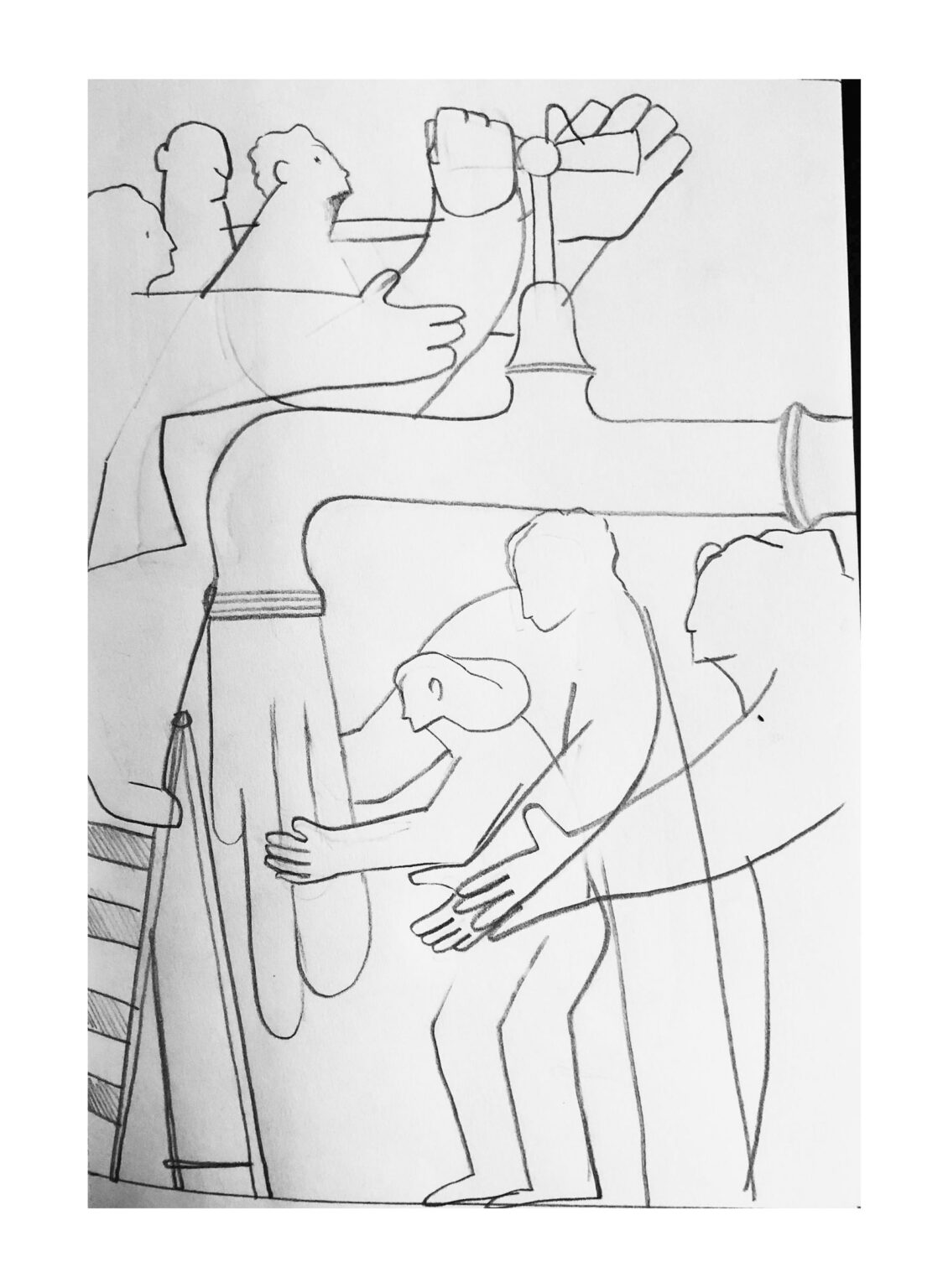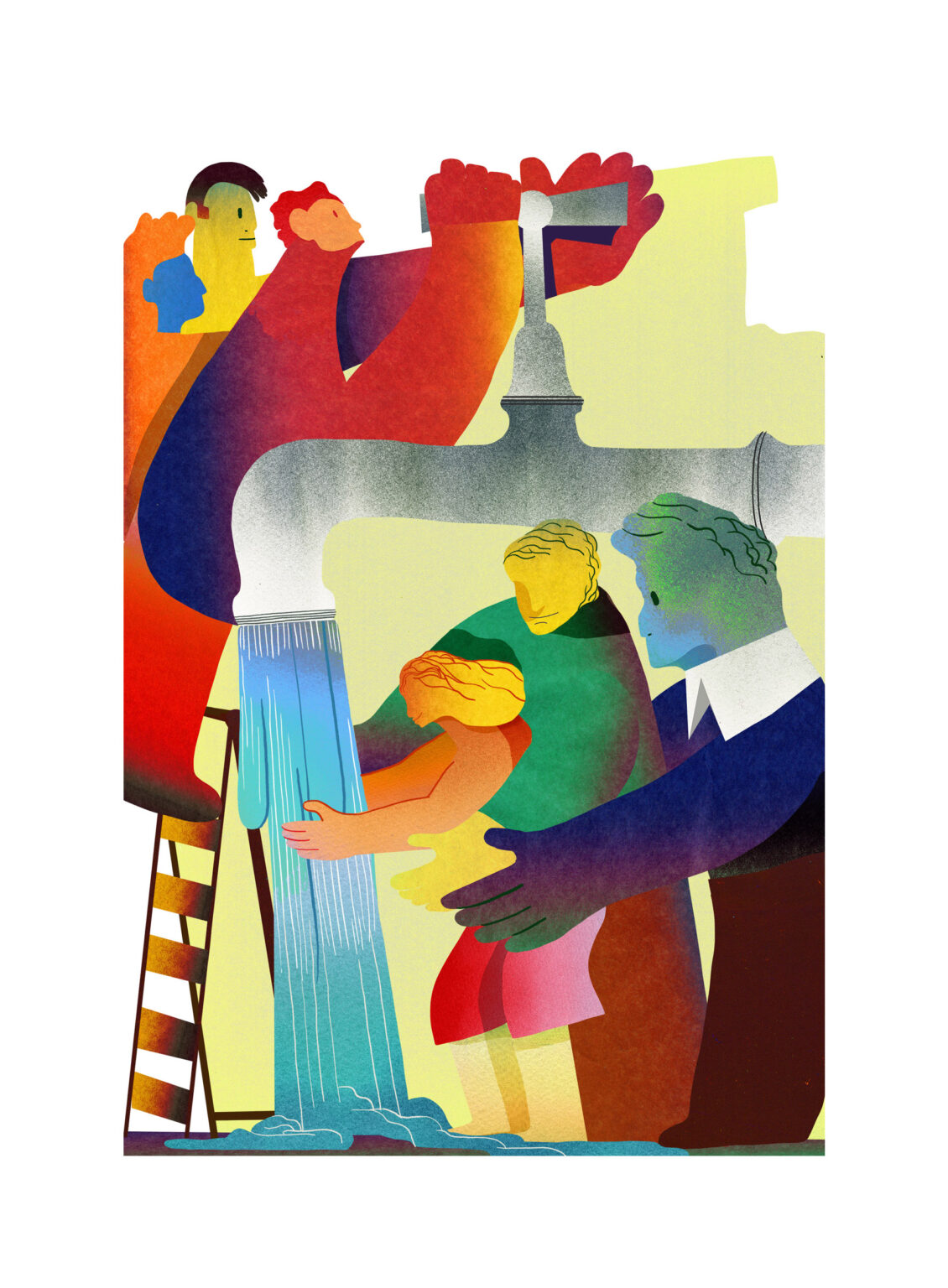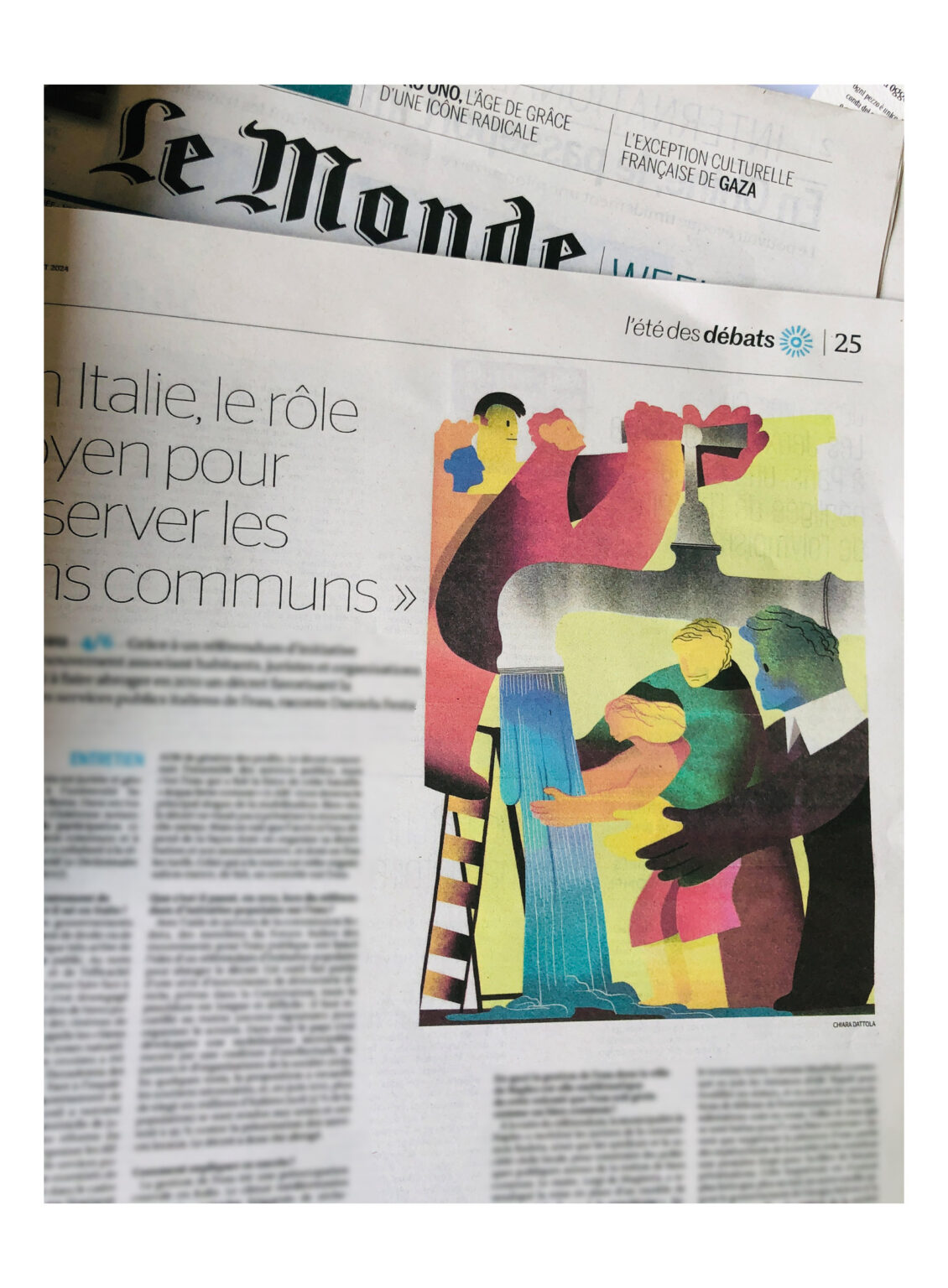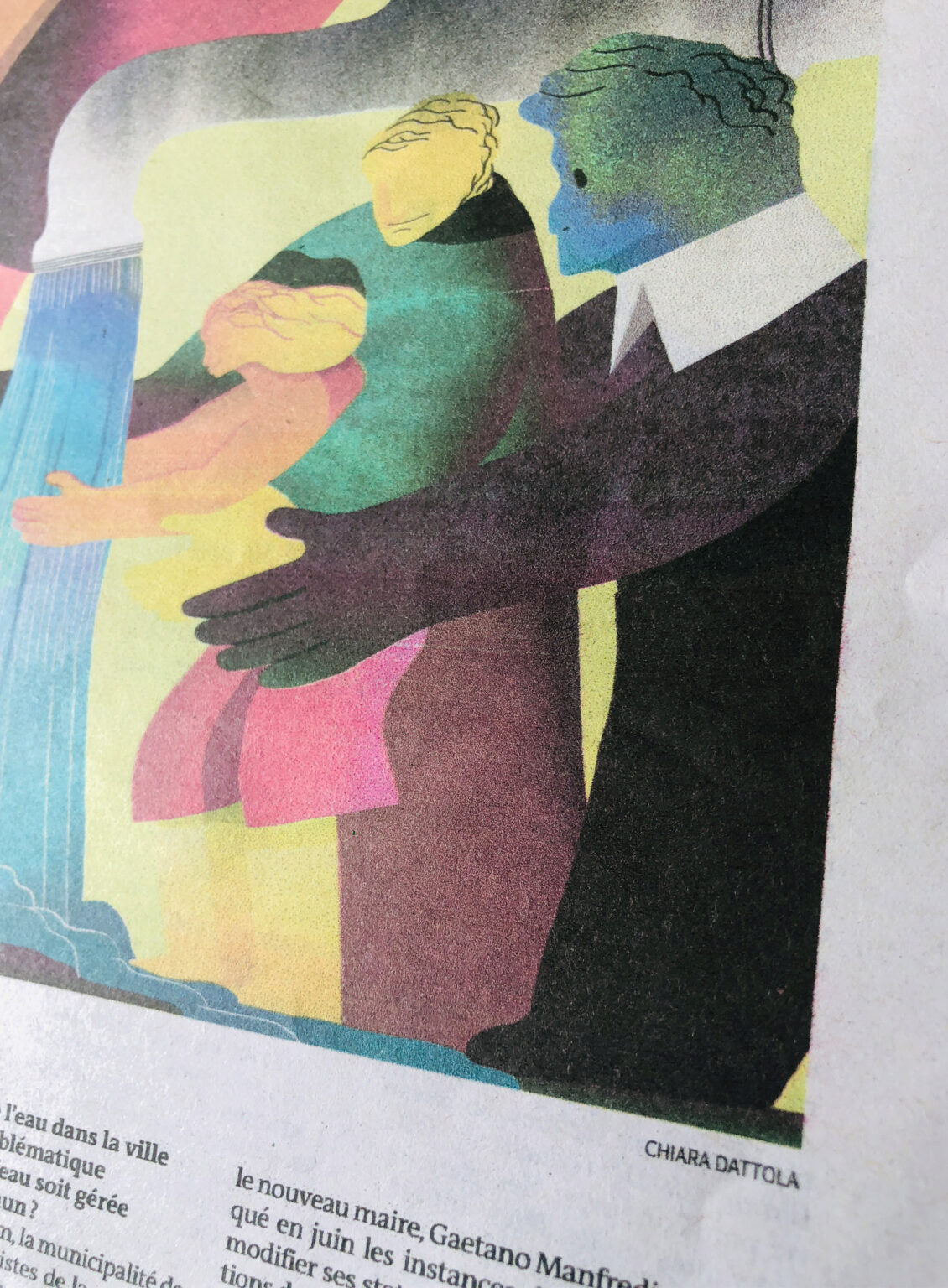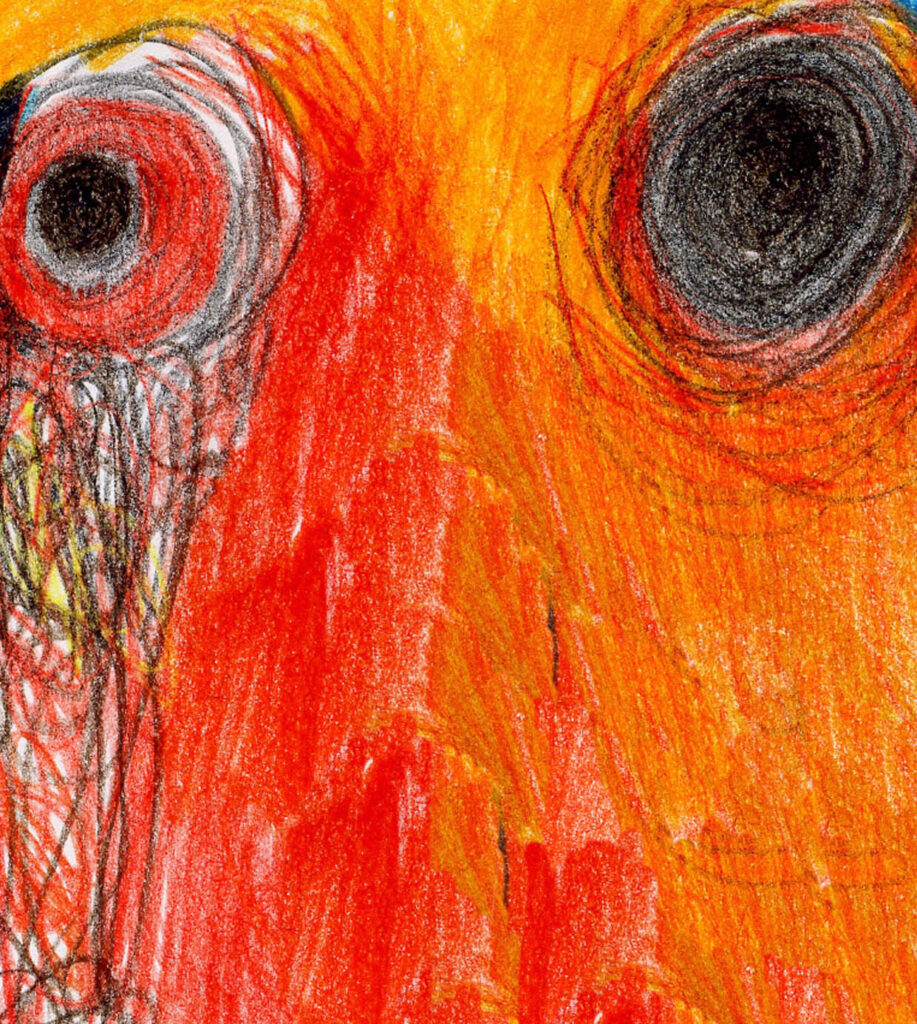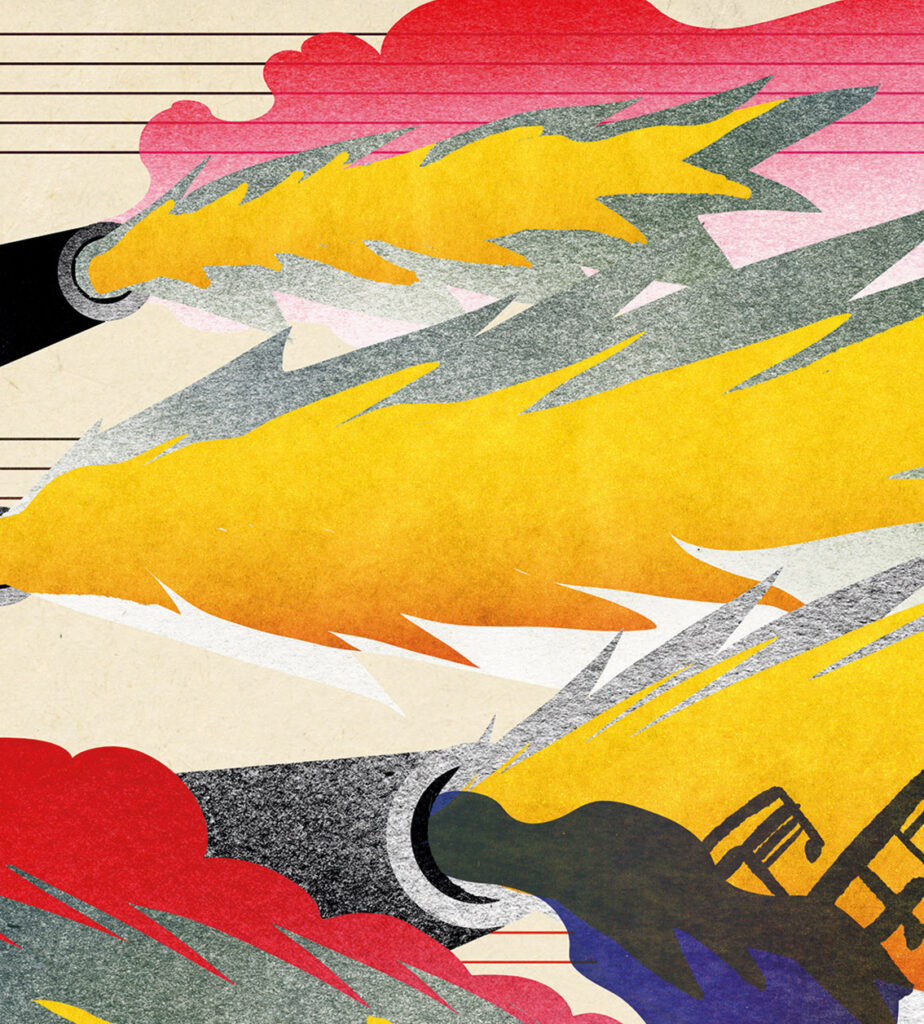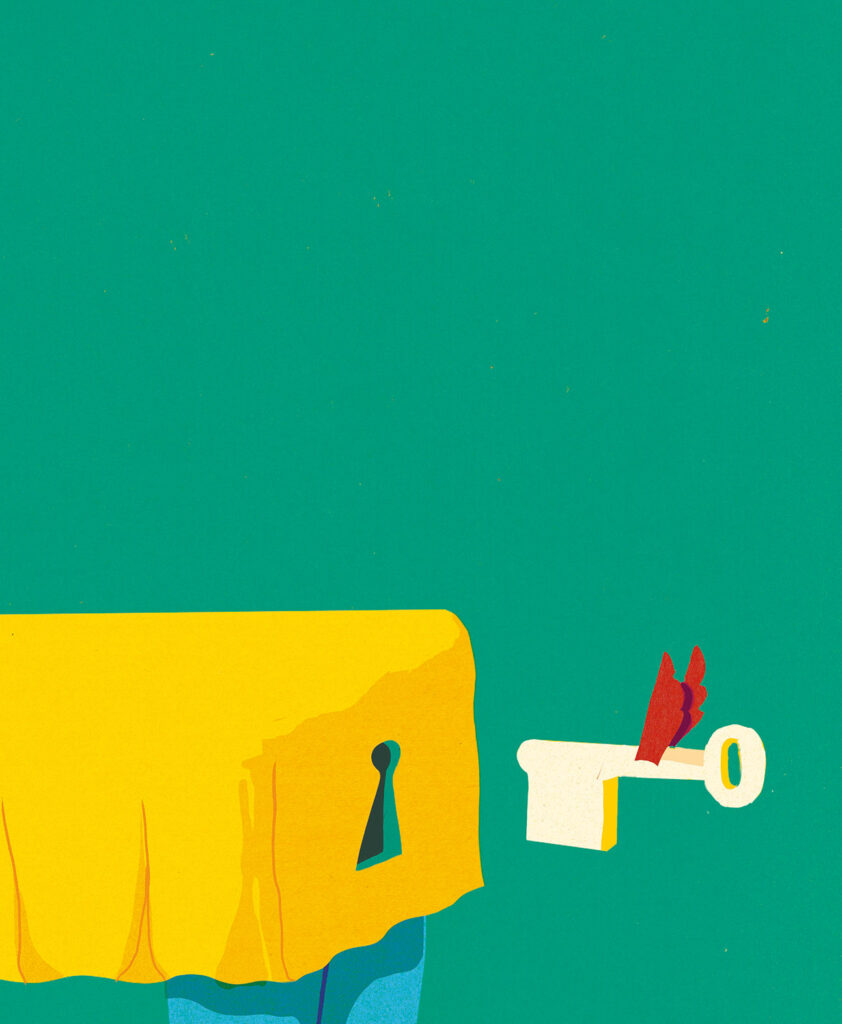Batailles d'eau #01
Le Monde
These are two of the six illustrations created for the series Les Batailles d’eau, published in Le Monde – Summer Debates section.
All the images are based on six different proposals gathered by Claire Legros. They highlight the importance of water reservoirs, rivers, lakes, and the right to clean water, as well as the battles undertaken by people from various countries around the world to protect these resources and this fundamental right. One of the articles specifically addresses Bioregionalism.
BEHIND THE SCENE
The first of the two images depicts the resistance of the people of Cochabamba in Bolivia, who, in 2000, rose up in what became known as “The Water War” against the privatization of drinking water by multinational corporations.
The illustration I envisioned to accompany this story portrays two figures as tall as the Bolivian mountains, “embracing” and “welcoming” a river of water flowing through their hands.
This gesture does not symbolize “ownership” but “belonging”: belonging to a land, being part of it, safeguarding it, and protecting a right as a living entity. This, in essence, is the subtext of all the testimonies documented by Legros.
The image has been selected for the Illustration West No. 63 competition, organized by the Society of Illustrators of Los Angeles, and will be exhibited in their gallery starting in March 2025.
In the previous edition, another illustration of mine, centered on the themes of friendship and the metamorphosis of social relationships, was selected.
You can find HERE the entire project, showcased at the Niemeyer Library in Le Havre during the “Quand la presse s’illustre” exhibition.
For this second contribution, Daniela Festa, a jurist and geographer, explores the theme of water as a Common Good, following the definition established by jurist Stefano Rodotà.
In 2007, the center-left government led by Secretary Romano Prodi appointed a ministerial commission to reform the Italian Civil Code, aiming to better categorize public goods and services, and above all, to safeguard essential resources from the wave of privatization.
Festa’s intervention highlights the crucial role of citizens and their active engagement in supporting democracy.
My contribution, in this context, reflects the idea of protecting and ensuring the responsible use of a common good.
The faucet is opened by citizens for citizens, symbolizing use and respect for all, as well as for the resource itself.

